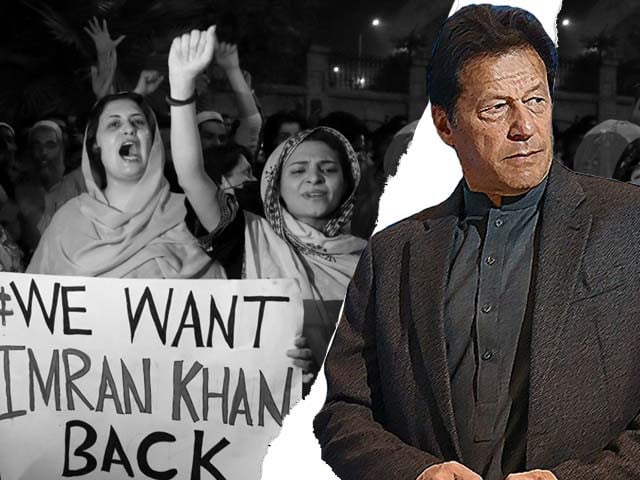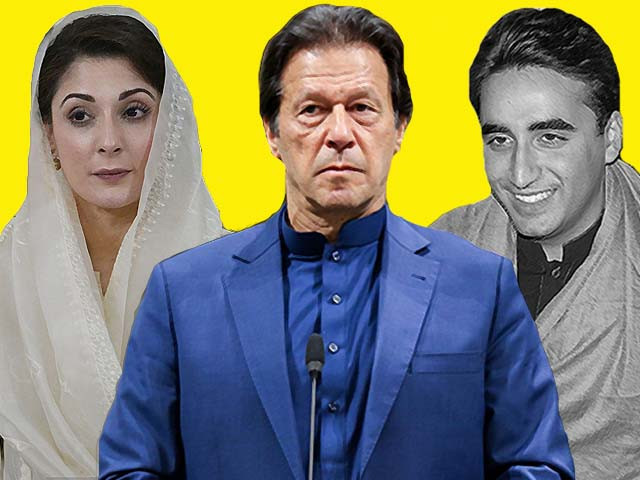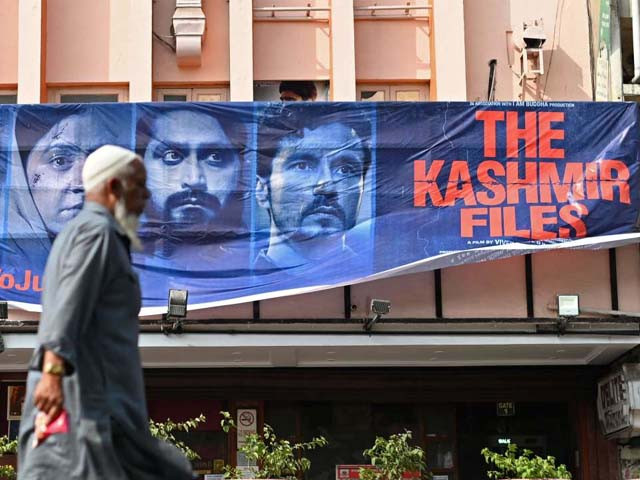
Why do people support Imran Khan despite his poor report card?
With former prime minister Imran Khan ousted from power, there are concerns that he could now resort to agitation tactics like he did during his dharna (demonstrations) days before coming to power. Indeed, his supporters are out in the streets marching to the tune of a populist leader who has deflected the issue away from personal accountability towards foreign conspiracies, and is instead accusing the opposition of treason.
Imran’s fan base comprises of the educated middle and upper middle classes that see him giving voice to their pet concerns that define their perceived identity. Many of Imran’s supporters also reside in the West. This was evident from the fact that many Pakistani Americans drove for hours just to listen and see him speak when the former PM visited the United States in 2019. More recently, some Pakistani Americans were seen on social media burning their old Pakistani passports, in protest of Imran’s ouster. This would have been unthinkable in the case of Non-Resident Indians (NRIs), as desh (country) is to Indians what din (religion) is to Pakistanis.
While such Pakistanis speak fluent English and enjoy western comforts, they also deal with Islamophobia. Therefore, many such Pakistanis in the West cling on to their identity by resorting to conservative Islamic beliefs on LGBTQ issues, upholding their prejudice against Ahmadis, downplaying the West on imperialism, and nursing pet issues of Palestine and Occupied Kashmir. Imran has been able to cater to them in a way that previous leaders have not. As an educated, handsome, and well-known man, he has given a voice to their concerns, affirmed their Muslim identity, railed against the West, and has been successful at the United Nations in getting May 15th to become the International Day to Combat Islamophobia.
It is irrelevant to his supporters that such a day is largely symbolic, that harping on Palestine and Occupied Kashmir is a dead end which deflects from the pressing economic issues in Pakistan, and that demanding the condemnation of Islamophobia but perpetuating institutionalised discrimination against Ahmadis and religious minorities in his own country is hypocritical. Many of Imran’s U-turns while being in power, as captured hilariously by Khurshid Shah, are also conveniently ignored by his faithful supporters. The issues of loans from the International Monetary Fund (IMF), skyrocketing electricity and gas prices, currency depreciation, lavish protocols, and political compromises remain as relevant today as they were in 2019.
A cursory look at the data on the key economic indicators reveals a dismal economic performance during Imran’s tenure as prime minister, compared to the last three years of Nawaz Sharif’s government from 2015-2017 despite charges of corruption and nepotism. The numbers speak for themselves. Indeed, despite all of Imran’s rhetoric, growth has been much lower, and food inflation, unemployment, debt, taxes and corruption, all considerably higher.
|
Party/ Country |
Period |
Growth Rate (%) |
Unemployment Rate (%) |
Debt/GDP (%) |
Personal Income Tax (%) |
Corruption Rank |
Food Inflation (%) |
|
PML (N) |
2015-2017 |
5.27 |
3.76 |
65.97 |
20 |
117 |
^ |
|
PTI |
2018-2020 |
2.45 |
4.24 |
81.67 |
35* |
140* |
15.30+ |
|
Bangladesh |
2018-2020 |
6.13 |
4.60 |
29.80 |
25* |
147* |
6.20++ |
*data from 2021; +March 2022; ++February 2022; ^roughly around 5%
Source: Macro Trends; Trading Economics
The data also reveals that despite Imran’s milk and honey rhetoric on making Pakistan a destination where foreigners would arrive to seek jobs, a rudimentary comparison with Bangladesh completely dismantles that rhetoric. Despite being ranked higher on corruption, Bangladesh boasts a much higher growth rate, and much lower debt, food inflation and taxes.
The proof is in the pudding. However, Imran’s overseas supporters, and the affluent in Pakistan, are not affected by the issues that afflict their compatriots in Pakistan, who reel under heavy taxes, poor services and the skyrocketing cost of living. Generally, most voters do not know enough about the pressing economic issues with all the nuances to contribute to any meaningful public discourse. They are usually driven by symbolic concerns and personality cults.
Thus, as long as their symbolic issues are kept alive, their identity remains safe, and so remains firm their support for Imran Khan. They can afford to do so, as they have the luxury to both criticise the West and extol Imran as an exercise in identity thumping. Yet, for all their blind worship of a populist demagogue, the truth remains clear that Imran Khan’s report card has been abysmally poor.




COMMENTS (41)
Comments are moderated and generally will be posted if they are on-topic and not abusive.
For more information, please see our Comments FAQ